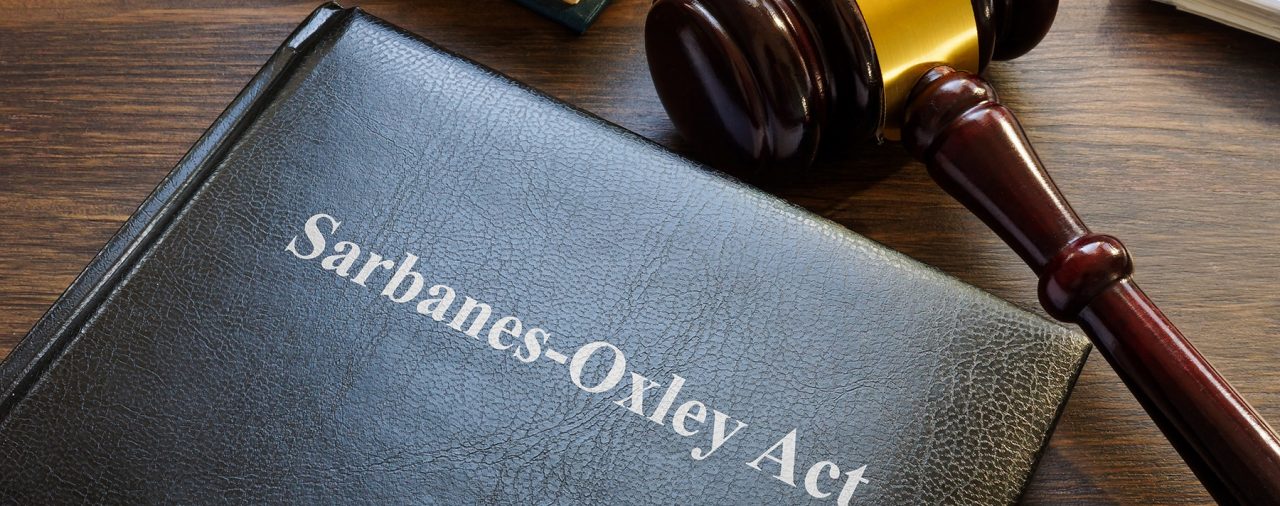Content Highlights
In a groundbreaking decision, the U.S. Supreme Court unanimously ruled that retaliatory intent need not be proven for protection in SOX whistleblowing cases. Now, employees who report activities they reasonably believe constitute financial fraud within the company are shielded from retaliation.
While we previously have written on the subject of whistleblower protections provided by the SEC, today we provide an in-depth discussion of the recent SCOTUS ruling and its implications. At Gardner Employment Law, we stay up to date with new rulings regarding whistleblowers. Read on to learn how this opinion may affect you.
How Did the SCOTUS Decision in Murray Change Employees’ Protection under SOX?
On February 8, 2024, the U.S. Supreme Court issued a unanimous decision in Murray v. UBS Securities, LLC, et al., holding that under SOX (Sarbanes Oxley Act) a whistleblower need prove only that his report of fraud was a “contributing factor” in the employer’s adverse decision against the employee. No longer is an employee required to prove that the employer had any “retaliatory intent.” This ruling fundamentally altered the landscape of whistleblower protection under SOX.
UBS Securities terminated Trevor Murray after he reported to his supervisor that two UBS leaders pressured him to alter his research reports on commercial mortgage-backed securities, which he refused to do. The issue in the case was whether Murray needed to prove retaliatory intent on the part of his employer to prevail in his SOX retaliation claim.
The High Court’s ruling sent shockwaves through legal circles by dispelling the notion that whistleblowers must prove a retaliatory intent by the employer to prevail under SOX. Instead, the Court clarified that any adverse employment action taken against an employee due to a protected whistleblowing activity violates SOX, irrespective of the employer’s motivations. In essence, the ruling establishes that the mere presence of protected whistleblowing activity is sufficient to warrant protection under SOX.
This ruling has significant implications:
-
- It strengthens the protection for whistleblowers against retaliation.
- It lowers the threshold for recovering on a claim under SOX.
- It underscores the importance of fostering a culture of transparency and accountability within organizations.
How Does an Employee Prove a SOX Whistleblowers Claim?
To prove a SOX whistleblower claim, employees of publicly traded companies must show that they reported activities they reasonably believe constitute financial fraud within the company. The statute lists six types of fraud that can form the basis of a SOX whistleblower claim. Section 806 of the Sarbanes-Oxley Act protects employees who report to their supervisor or to the government any conduct by the company that they reasonably believe constitutes
- wire fraud,
- mail fraud,
- bank fraud,
- securities fraud,
- a violation of any rule or regulation of the SEC, or
- any provision of federal law relating to fraud against shareholders.
Mounting a SOX whistleblower claim is not as difficult as other types of whistleblower actions. One, an employee can make the report to anyone in management, even his or her supervisor. Other statutes require employees to make the report to a governmental authority. Two, the employee need only a “reasonable belief” that fraud has occurred, not hard, cold evidence of fraud. And now, three, the employee must show that his or her act of reporting “contributed to” the employer’s decision to take adverse action against the employee.
Most employees are too afraid to speak up even if they observe fraudulent activity going on. This lower threshold hopefully will give employees the courage to step up and report any fraudulent wrongdoing that they see occurring at work.
What Are the Broader Implications of SCOTUS’ Decision in Murray?
Beyond its immediate impact on whistleblower protection, the SCOTUS ruling carries broader implications for corporate governance and ethical conduct in the business world. Transparency and accountability are paramount. To uphold these values, SOX rewards whistleblowers who dare to speak out against their employer’s fraudulent misconduct. SOX came about because of Sharon Watkins’ courageous actions in blowing the whistle on the Enron insiders. The Murray decision encourages more employees to follow Sharon Watkins’ example.
Ongoing effects of the Supreme Court’s ruling:
- Enhanced Corporate Accountability: Companies must reassess their treatment of whistleblowers and ensure they uphold the principles of transparency and accountability.
- Legal Precedent: The ruling sets a clear legal precedent that the mere presence of protected whistleblowing activity can trigger liability under SOX, influencing future legal interpretations and decisions.
- Organizational Culture: Employers must cultivate a culture that values integrity and encourages employees to report misconduct without fear of reprisal.
The SCOTUS ruling not only advances whistleblower protection but also underscores the broader importance of ethical conduct and transparency in corporate governance. It serves as a reminder that fostering a culture of integrity is not only a legal obligation but also a fundamental aspect of sustainable business practices.
Contact A Legal Expert
SCOTUS’ opinion in Murray marks a pivotal movement towards increased protection for whistleblowers, emphasizing the role of integrity and transparency in corporate governance. If you are in need of guidance in this area of law, contact us today.

